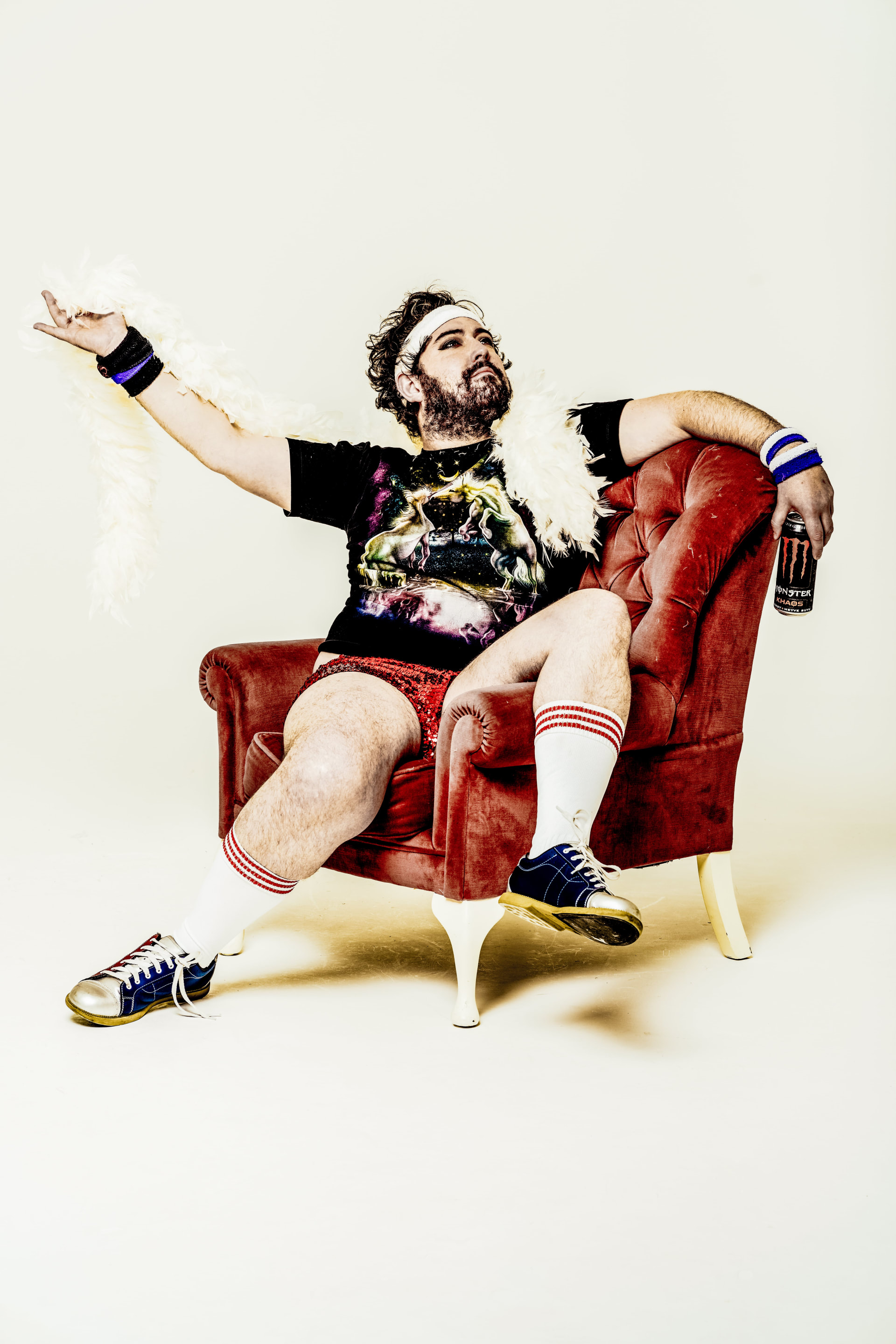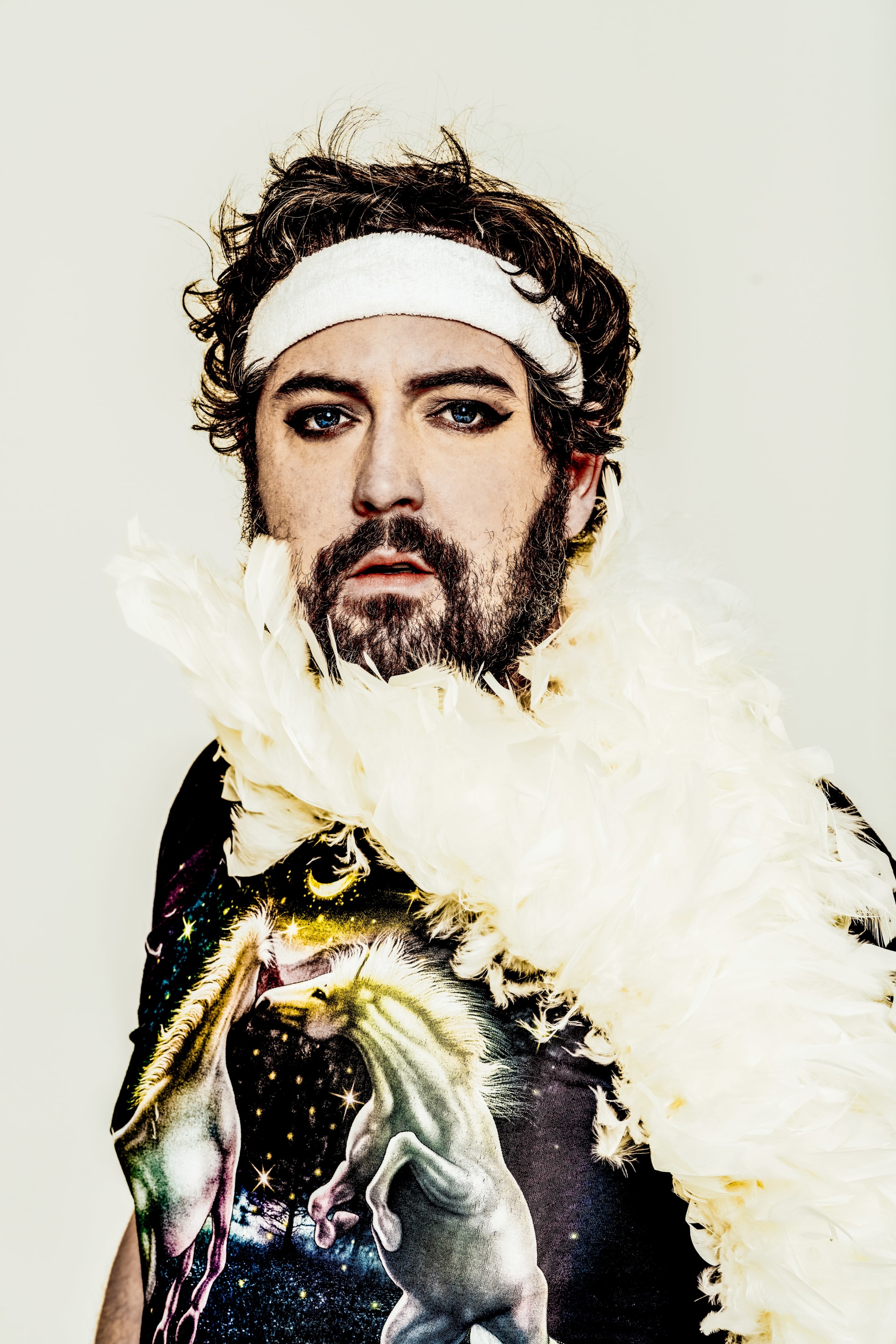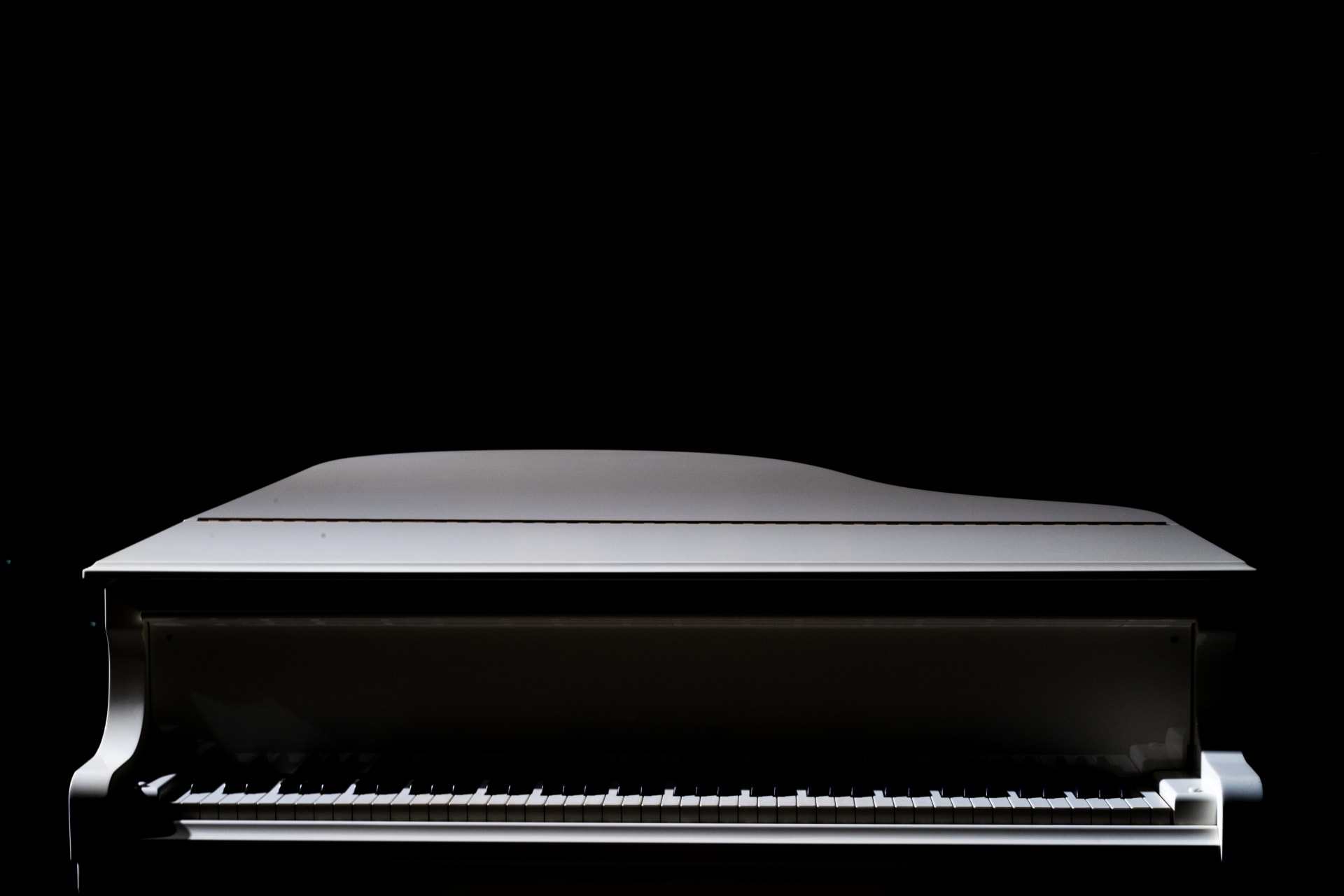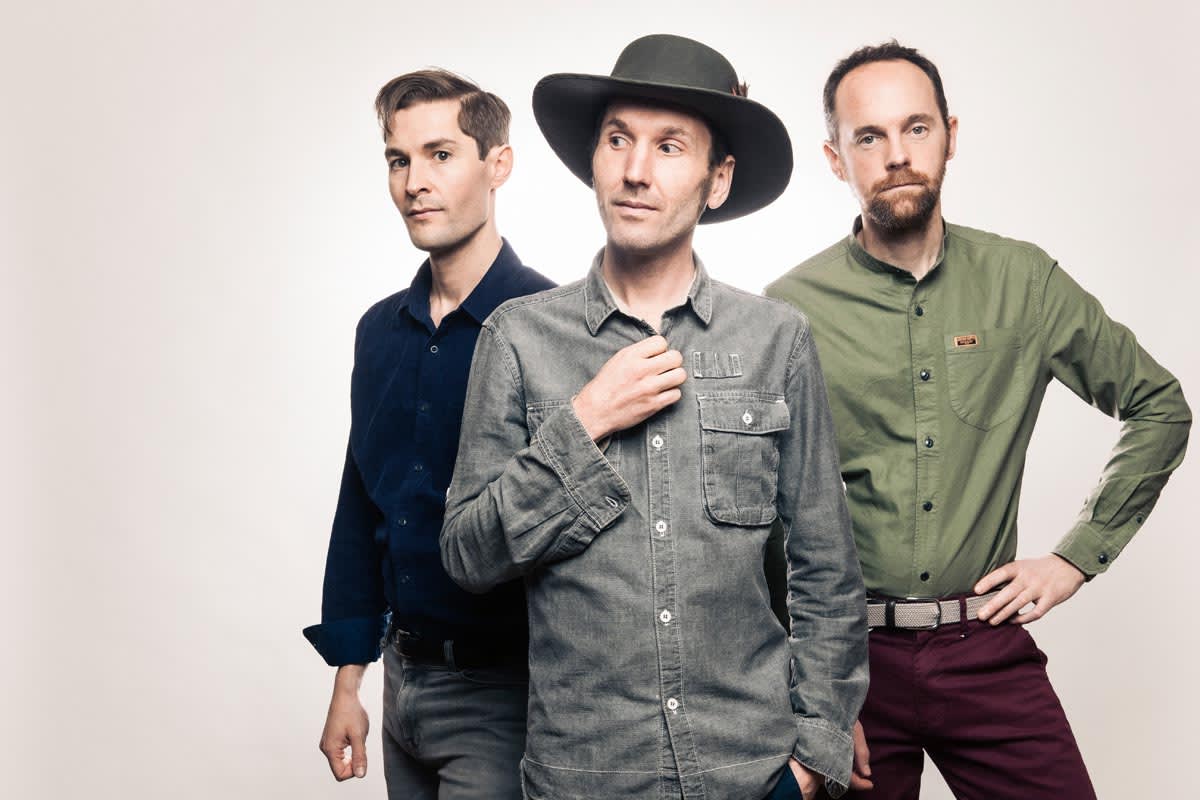“If we get nothing else out of this interview, it should be that we put something positive about Guy Fieri into the world. Everyone uses him as a punching bag but I think he’s great.” A bizarre end, perhaps, to a chat with comedian Nick Helm, but also uncannily fitting. I shouldn’t overanalyse his appreciation for the much-maligned American food presenter and restaurateur, but I can’t help feeling it reflects a more general affinity with the underdog. I reckon Nick’s the kind of guy who’d eat lunch with the new kid at school so they didn’t get picked on.
He’s presented his own cooking show on Dave, Eat Your Heart Out, representing the latest intersection of what is truly a Venn diagram career, with writing, acting, stand-up and music variously combining throughout his life in the arts. There’s no mystery there, he’s just ferociously creative. At school he painted, wrote poems, played in bands and wanted to be an actor. He was however, and still is, “f*cking terrible at auditions”, so wrote his own plays.
His first taste of the Fringe came at the ripe old age of 16, when he played Prince Escalus in the Sandringham Secondary School production of Romeo and Juliet. There, something clicked. “I thought, ‘Oh I’ll just do this. If I do Edinburgh every year for the rest of my life, I’ll be happy.’ So that’s what I did.” At 20, he started writing shows for the Fringe but found that after many months’ work, “you show it to people and it is what it is. It’s either great or a noble failure.” Irrespective of outcome, the reaction – and artistic gratification – is delayed.
“With comedy, you’re testing it out all the way and fine-tuning it so when you actually go up to Edinburgh it’s tried and tested. They’re like polar opposites. With a play you’ll write something and get a reaction for it seven months later, whereas with comedy you can think of stuff spontaneously on stage and get an instant reaction.” His maiden stand-up set was in September 2006. “It actually wasn’t a bad gig,” he remembers, “but it was followed up by about a year of terrible gigs.” He didn’t stick at it because he was an instant success, but because he’d found it. “It was the first time I’d done something in a long time – if not ever – where I realised this is what I want to do. It felt like it was the missing piece to a puzzle.”
The idea that comedy could be a viable career seems obvious today, but not so 20 years ago. All the stuff you saw on telly was fully formed, and on one of a handful of channels. The result was a sense of impenetrability, a feeling that “being a comedian is something that other people do.” Regardless of vocational viability there can be no substitute for just giving it a go. “They do uni courses on it now,” he says sceptically. “I think they’re absolute bullshit. I don’t think you can learn anything at a university that you can’t learn from getting up on stage. If anything, if you study something like history then you’ve actually got something to talk about.”
Twice-nominated for the prestigious Edinburgh Comedy Award, whatever he’s been talking about, it’s worked. His gravel-voiced, foul-mouthed comic persona involves things “that for other acts would be unprofessional. My act is entirely unprofessional,” he says plainly. “I write on my hand, I can’t remember anything and I have a go at the audience and get angry with them. I tell them that they’re ruining my night. Entertainers are meant to smile through it. You’re supposed to leave your problems at the door. I do the opposite. I go out and I’m really pissed off at the audience for being there, because if they weren’t there I wouldn’t have to go to work.”
For me, the slightly chaotic, confrontational material works so well because there’s something so palpably vulnerable about it. This endearing, aggressively self-deprecatory angle comes out strongest in his songs. I’ve seen him introduce one, ‘He Makes You Look Fat’, with the line, “Who here’s in a relationship…? F*ck you.”
There are sometimes shades of Jonny Vegas’ tragicomedy there, also of Stewart Lee’s deconstructionism. Part of what’s funny is deliberately flouting the expectation of a comedy audience; the obligation passively filtered from crowd to performer. One of my favourite lines of his – ‘It’s not my job to come over there and pull a good time out of your arse’ – sums this up perfectly, but that’s not a thought reserved for his onstage persona. “You get so many passive audiences that just sit there and go, ‘well, it didn’t do anything for me’ and I’m guilty of it as well. I go and see stuff and I don’t enter the spirit of things. You just think, ‘we’re all here in one room, for one night, so either get on board or f*ck off.’”
His new show, Phoenix From The Flames saw him return to the Fringe for the first time in six years. It follows what was, by all accounts, a pretty rough year for the 39-year-old. “I’m very nervous about this show because I’m being very honest,” he tells me sincerely, “but I’ve always believed that the more specific and honest you are about yourself, the more other people will be able to relate. There’s a finite amount of emotions that we all feel and that connects us as people. It’s my job to go and say how I feel, and for people to respond to that.”
He suffers with bouts of depression and anxiety that can leave him housebound. Sometimes having a show to do is the one thing that will get him out, and he knows that the gig might do similarly for others. “One of the things I’m most proud of – and I’m not a proud man – was that somebody said I was able to voice how they were feeling. What they responded to was that they felt like they weren’t alone.” Opening yourself up like that is tough for anyone, but stand-up can be ruthless. Thankfully, “people have been absolutely amazing. They’ve been incredibly supportive, but also I feel like they got something out of it. I’ve had loads of people say that they can’t leave their house, that they get overwhelmed by everything, that they almost didn’t come because they couldn’t face leaving – then they did come and it was an amazing release for them.”
He watches telly to decompress when he gets back after gigs – cooking shows to be exact. Favourite host? “Rick Stein”, he says without a moment’s hesitation. He finds his awkwardness endearing, like what he imagines his dad would be like if he had to present a cooking show. We agree that Man v. Food is a crime against nature, and that Guy Fieri’s Diners, Drive-Ins and Dives is joyous. He talks about food shows with genuine affection, because as well as looking out for the little guy, he strikes me as an enthusiast – someone who’s into being into stuff.
He hangs around after gigs and meets people, insisting he’s just another human being. In a chat lasting an hour, he expresses a similar sentiment three times. Britain is now in the midst of a long-overdue discussion about how we treat each other, both online and off, and his saying he’s not a celebrity feels poignant in hindsight. Some solutions seem complex, but others less so. What’s inviolable in this digital age is the value of getting together in a room and showing humanity by connecting over something, be it comedy, music or Rick Stein. We all deserve a little kindness in this world, even Guy Fieri.
Nick’s tour has been postponed due to Coronavirus – all tickets will be valid for re-scheduled dates. See nick-helm.co.uk for updates.
Photography © Edward Moore










